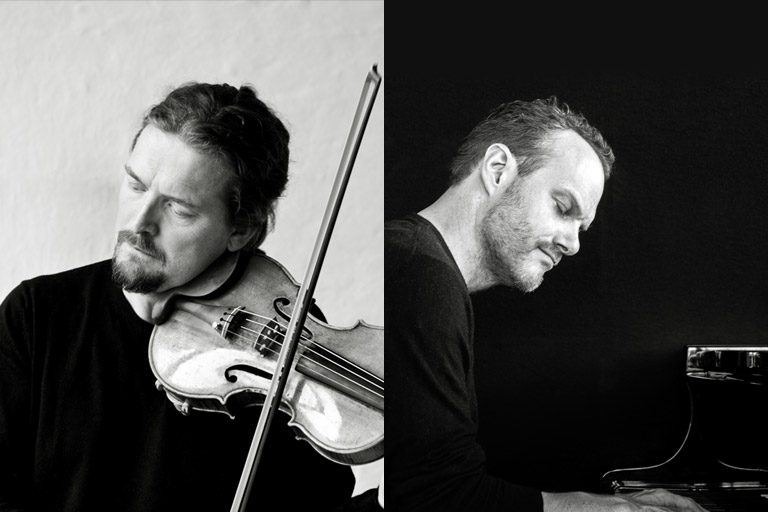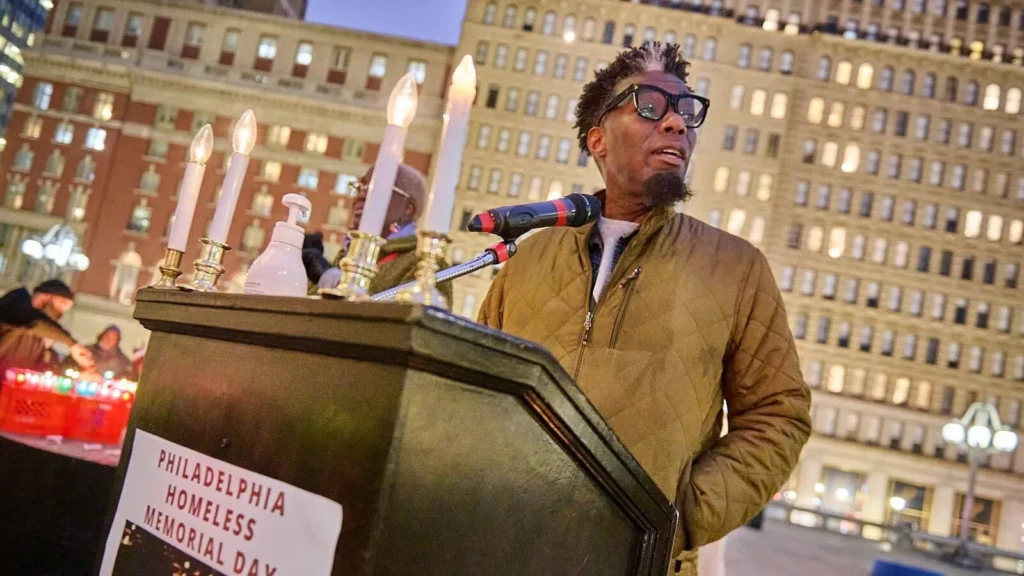The McCarter Theatre Center presented international superstars Christian Tetzlaff and Lars Vogt in concert Monday October 21 at Richardson Auditorium in Princeton.
The program included: Beethoven’s Violin Sonata in A Major, Op. 30, No. 1; Shostakovich’s Sonata for Violin and Piano in G Major, Op. 134; Kurtag’s Tre Pezzi for Violin and Piano, Op. 14e; and Franck’s Sonata for Violin and Piano in A Major. Amazingly, they are scheduled to perform the exact same program on October 22 at the Perelman in Philadelphia.
Christian Tetzlaff (born April 29, 1966) has an international reputation for his estimable artistry and technical skill with the violin. He strikes a formidable, Romantic pose on stage, tall and lean of frame, recalling a modern-day Niccolo Paganini, as he moves sensually to the music he is playing. Lars Vogt (September 8, 1970) is world-renowned pianist in his own right, as well as a conductor, and has often joined forces with friend Christian Tetzlaff in recital. He appears to be somberly possessed while playing, which belies his youthful, impish aspect.
As performances go, there was not a moment when one could feel anything but total consonance in intent and execution between the two men. Indeed, they chose the program because they clearly loved each piece or cared very deeply about them. Thanks to the witty and stylish program notes written by David Wright, we learned much about the program and the two men. For example, Mr. Wright tells us that the Beethoven allows each sterling artist to meet and compete on equal terms. Indeed, both Christian Tetzlaff and Lars Vogt played together beautifully. Shostakovich wrote the work on tonight’s program as a birthday present for the illustrious violinist David Oistrakh’s 60th birthday. It was both then and now considered a masterpiece, with, as Wright writes, “powerful, virtuosic solo variations for each instrument.” Both Christian Tetzlaff and Lars Vogt played with brilliance accented when necessary with eerie reveries. The sounds which occasionally came from Mr. Tetzlaff were simply arresting. Kurtag (born 1926) here wrote three short works in 1979 which lasted only minutes with the names “Desolate and sad,” “Lively,” and “From a distance.” Both artists despatched the pieces with skill, reverence, and a sense of great mystery. Franck’s Sonata in A Major is a work which is often heard, but will never be played with such searching, probing ecstasy as witnessed here. Franck had written this as a wedding present. Emotionally heated and highly erotic, this was some wedding present. It was as if the two artists copulated with each other through their musical instruments. Mr. Tetzlaff’s entire body became Cesar Franck’s music, as he darted, twisted, and shimmied to the sounds he was creating. Dozens of uteruses in the audience vibrated in consonance, leaving susceptible women in the audience enraptured. Musically-minded young men in the audience also fell helplessly under his spell. Many staunch businessmen and intellectuals tried to remain impassive, with mixed results. Mr. Vogt this evening channeled Franz Liszt with totally abandoned piano playing before which even the most heterosexual male weakened. One could almost see the shades of the Comtesse d’Agoult and George Sand writhing in multiple orgasms under Mr. Vogt’s piano. Both Christian Tetzlaff and Lars Vogt concluded the sonata with fiery sensuality and intense eroticism which brought even the most truculent audience members to their feet. The acclaim prompted an excerpt from Brahms to be given by both geniuses as a love gift to the audience.
The McCarter Theatre Center presents a variety of theatre, music, and dance throughout the season. For example, next on stage will be Mary Shelley’s Frankenstein. For information and ticketing, visit www.mccarter.org .








